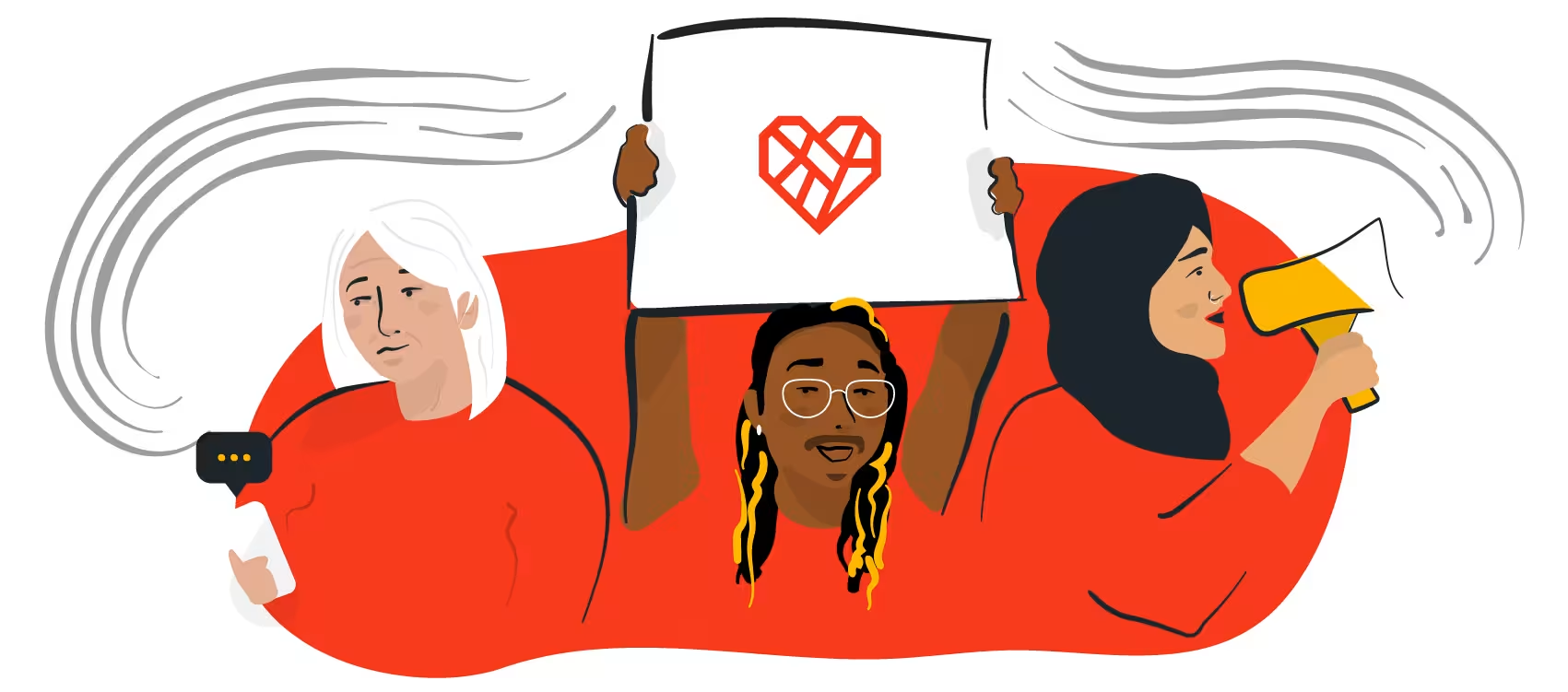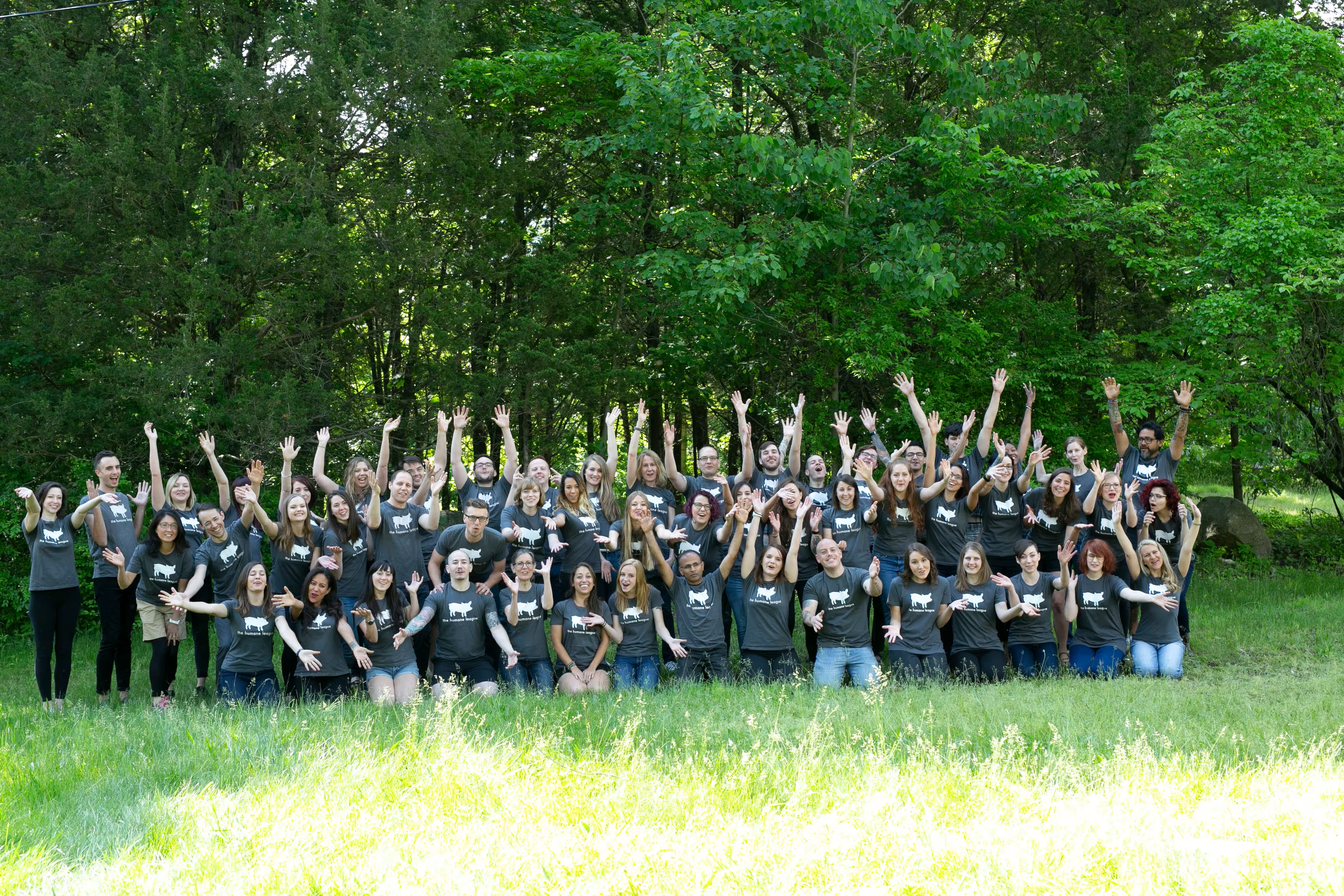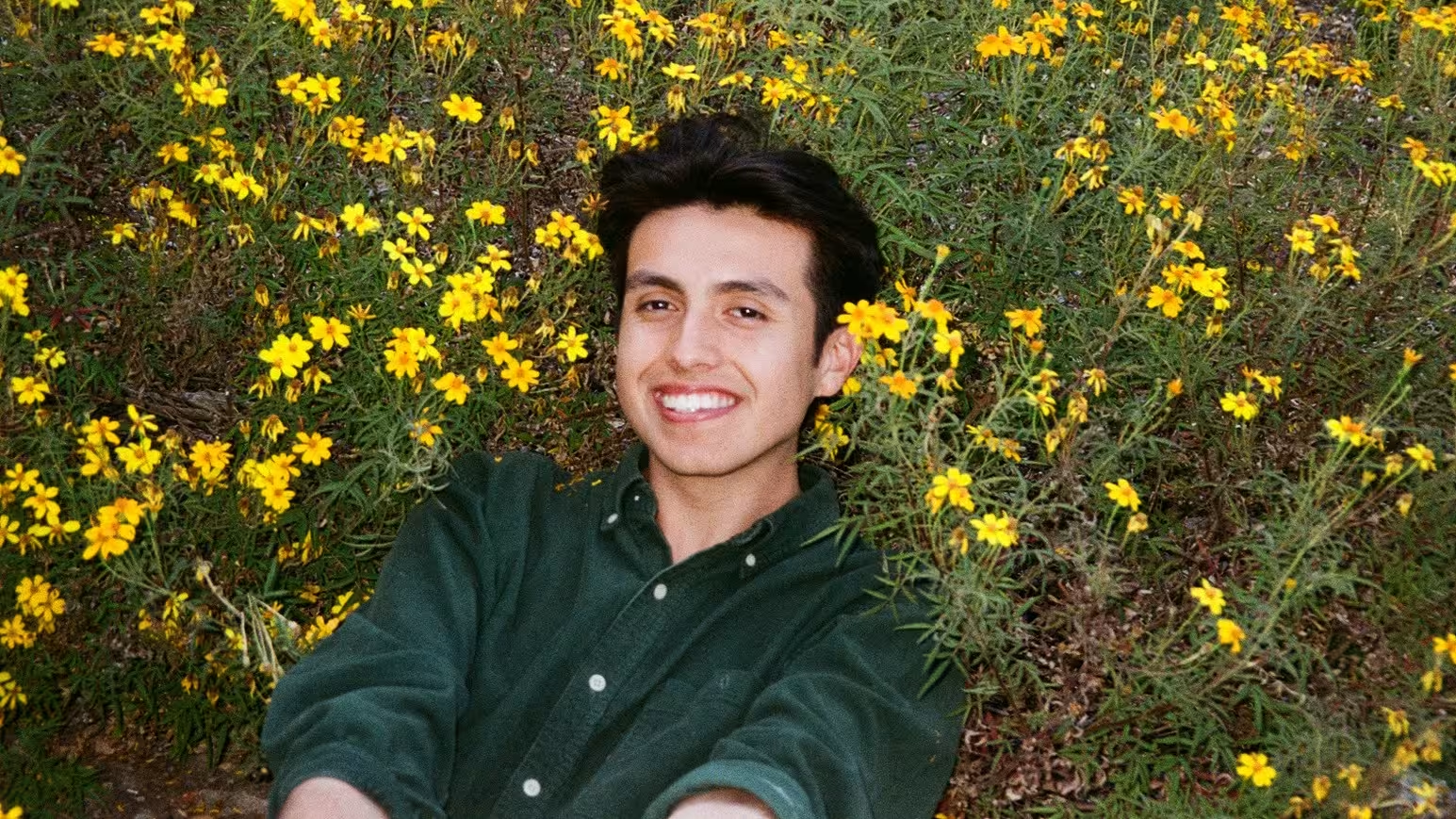




The Humane League’s new National Director of Organizing reflects on his path into animal advocacy—and his hopes for what volunteers can accomplish together.

Shawn Brown stepped into his role as National Director of Organizing at The Humane League earlier this month. For the last two decades, Shawn has organized on progressive issues, both personally and professionally, and has led impactful campaigns in California, Illinois, and Ohio. For the past five years, Shawn and his husband also co-owned a restaurant. In this conversation, Shawn shares his journey as an organizer, a vegan, and an advocate for the animals.
How did you find your way into animal welfare activism?
Shawn: For me it started with owning a restaurant and a small grocery store and trying to serve things that I felt good about. The more time I spent looking at and for good producers, the more I realized how cruel the industry in general was. We started out as a gourmet grocery store with a lot of imported luxury items and a small bar and cafe. We mostly made prepared foods, the kind of place where you could pick up dinner for your family or a bottle of wine and a small gift for the host if you were on your way to a party. We were forced to pivot during the pandemic to become more of a full service restaurant, which we hated. Part of the process of becoming a full service restaurant meant having to order more supplies, and trying to find things I felt good about serving was extremely difficult. We would get large shipments of chicken with the feathers still attached, and that made you have to confront the truth of what you were serving.
Relatedly, how did you come to veganism?
I became a vegan gradually. I started by cutting out red meat, mainly because of health concerns. Then as we got deeper into the work at the restaurant, I started to eliminate other things. The last thing I gave up was cheese, that took the longest. The entire process took about two years.
Where have you looked for inspiration when it comes to cooking and eating veg?
I have mainly cooked West African recipes. The flavor profile is identical to what I grew up with, but most West African cuisines aren’t meat-heavy.
How do you navigate food and family? Where did you find support as you became vegan?
Family and food is very difficult. I really don’t have a plan for approaching that. It’s mainly on a case-by-case basis. I still go to Sunday dinner at my granny’s house, but I don’t eat. My granny was a caterer and started our family in the foodservice business. So food provides a deep connection for our family. My family is supportive and doesn't push me on the issue. Mainly we just avoid the conversation because of the shared memories of the food that literally supported our family.
How did your journey ultimately bring you to The Humane League?
When we decided to close the restaurant and grocery store, I knew I wanted to return to organizing. But I wanted to work on an issue related to animal rights or the environment. I had started my career working in Church-based organizing and have since then worked in many different types of organizing: labor, school-based, youth, and neighborhood-based. In Chicago, I worked with a youth organizing group called VOYCE or Voices of Youth in Chicago Education. We worked with 275 youth from underserved communities. Watching these high school students go from a lack of understanding about how the government worked to drafting, passing, and getting the Governor to sign laws on school discipline, police in schools, and restorative justice was amazing. That’s my favorite thing about organizing: the moment when someone realizes they actually have the power to change something for the better.
This time around, I was really looking for an issue I could work on that had the largest impact. With the acceleration of climate change effects and my past experience in the restaurant industry, coming to The Humane League felt right. THL’s work to disrupt the foodservice industry just fit because I could work on both animal rights and the environment. First, there is the direct connection between raising animals for food and the damage that causes the environment. Second, there is a spiritual connection between the rot in the soul that comes from exploiting another living being and the ability to destroy, without feeling, the world around you.
How did you come to hold these perspectives? What shaped your understanding?
I was raised in a very Catholic family. While I’m no longer a practicing Catholic myself I still find solace and guidance in the social teaching of the Church.
Zooming out, what are your hopes for organizing within the farmed animal protection movement?
My hope for my work at THL is to help to create engaged communities willing to struggle for the rights of farmed animals across the country. I hope to be a part of building a community of well-informed strategic thinking organizers across the country who can move in concert to eliminate animal suffering. I want to see volunteers becoming leaders and driving conversations on the local, state, and national levels. The most concrete thing I would like to see is a shift in the conversation around what it means to care about the planet. I will know I have been successful when I’m no longer needed. I really believe the job of an organizer is to put themselves out of a job.
Shawn has been an organizer and an advocate for over twenty years. He has worked on issues from organizing nurses aides in West Virginia to working with Charter School parents in Southeast Los Angeles. He's looking forward to serving in this role and helping to build a strong animal rights movement.
 Ashley Chang
Ashley Chang





